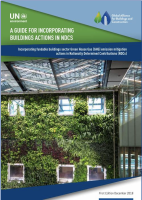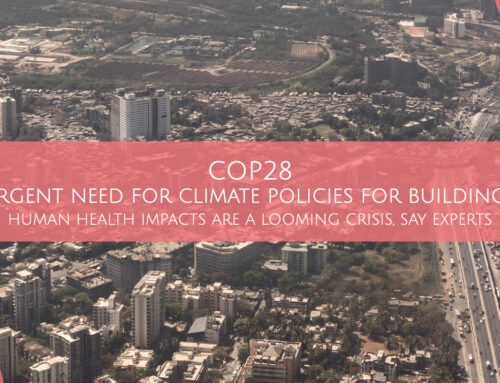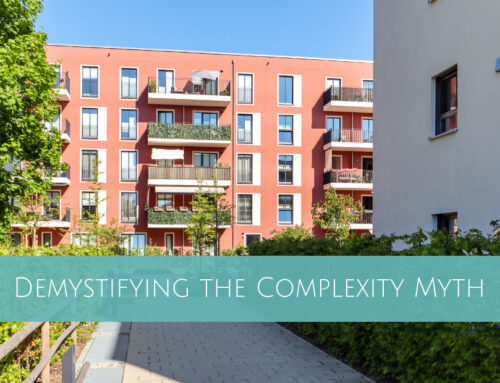Climate Action in the Buildings Sector: How to Incorporate Buildings Actions in Nationally Determined Contributions
The buildings sector contributes nearly 40% to global energy-related annual GHG emissions (IEA/UNEP, 2018). Final energy demand from buildings is predicted to increase 50% by 2050 compared with 2015 levels under business as usual scenarios due to rapid urbanisation and the doubling of the built surface area. Effective decarbonization of the buildings sector is therefore critical to meeting the Paris Agreement Goals and exceeding the current level of ambition in Nationally Determined Contributions (NDCs).
A new guide written for the UN Environment Program and the Global Alliance for Buildings Construction is designed to address the urgent need for further extending the scope and ambition of building sector actions in NDCs, the opportunities for aligning with commitments made by non-party actors, and the renewed support for successively increasing ambition and implementing actions of NDCs. It provides a simple process for incorporating or updating ambitious and effective building sector actions in Nationally Determined Contributions. The guide focusses particularly on key actions that are necessary to address and overcome common challenges faced by countries in designing, financing and implementing ambitious and effective actions, and is intended to support the progressive updating of NDCs.It provides a simple process for incorporating or updating ambitious and effective building sector actions in Nationally Determined Contributions. The guide focusses particularly on key actions that are necessary to address and overcome common challenges faced by countries in designing, financing and implementing ambitious and effective actions, and is intended to support the progressive updating of NDCs.
-
Building from existing policies and commitments, countries can extend the ambition of building sector actions by:
-
Increasing the scope of existing building energy regulations to include a greater proportion of building types, particularly housing, and to renovation projects;
-
Increasing energy performance standards for building envelopes, heating, cooling and ventilation systems, and appliances;
-
Integrate building sector actions with urban land-use planning to enable the decarbonisation opportunities of sustainable mobility choices, reducing urban heat-island effects, and providing scalefor integration of distributed renewable energy supply.
For more detail and case studies of building sector actions countries being incorporated by countries into NDCs download the guide at: https://globalabc.org/resources/document/108
Related News
- [News] Climate success in Paris: the buildings sector’s key role
- [Event] Buildings Day at COP21 – 3 December 2015, Paris
- [News] Content Available from the Webinar of 22 Oct 15 – Implementing Building Energy Codes
- [Event] Meet GBPN at COP21
- Join the Global Alliance for Buildings and Construction!
- Webinar “How to Incorporate Fundable Buildings Sector Actions in NDCs – Latin America”
Share This Story, Choose Your Platform!
Stay in touch with how we’re transforming the buildings sector
GBPN runs innovative building policy reform programs in key regions around the world that aim to tackle the climate emergency by decarbonising the buildings sector. Stay up to date with our newsletter.
Stay in touch with how we’re transforming the buildings sector
GBPN runs innovative building policy reform programs in key regions around the world that aim to tackle the climate emergency by decarbonising the buildings sector. Stay up to date with our newsletter.







